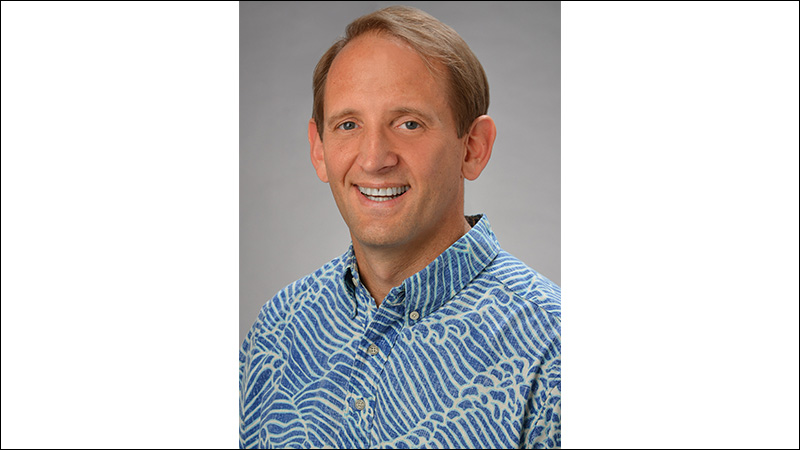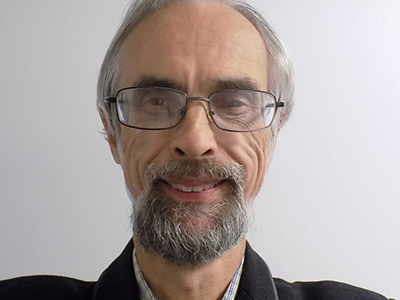Tim Mobley's Connext Helps Companies Improve by Managing Their Remote Workforce
Tim Mobley, President of Connext, created a better way to provide remote support for companies in need of help from beyond the office.

Meeting the Challenge of Worker Shortage Remotely
Hiring, supporting, and retaining good employees, especially for the customer-facing workers on the front line, has always been the biggest challenge for business owners and managers. Then the pandemic hit, and everyone who had to work remotely found the transition a bigger challenge than anyone imagined. Employers were excited to reboot after vaccination became widespread, but many workers have not been eager to return under the same conditions or maybe not at all.
It's no wonder that so many companies are turning to the Business Processing Outsourcing (BPO) industry, which racked up $232 billion in revenues in 2020 and is expected to have a compound annual growth rate of 8.5% for the next eight years. Connext Global Solutions, headquartered in Honolulu, has been pioneering a better approach to hiring, training, and managing remote workers, whether in customer service or doing back-office tasks.
"When I was president of a dental group, I learned just how hard it is to hire enough people who understand dentistry, are good on the phone, great with patients, can verify and process their insurance, calculate co-payments, manage the billing process, use a complicated software system, and coordinate with vendors," said Mobley. "Then we found the perfect candidate. We had to explain that we couldn't pay much since our revenue was limited by the insurance companies."
In 2008, Mobley's boss handed him Thomas Friedman's “The World Is Flat,” about globalization. He realized they could simplify jobs by separating tasks that needed different skill profiles, which made training easier and outsourcing some possible, saving money while getting better service. Mobley first utilized a BPO in India, but by 2012 it couldn't keep up with the group's needs.
With many friends of Filipino descent, he knew that most in the Philippines spoke English because it is a former American colony, which also made it a better cultural fit. It has a population of 110 million, a huge talent pool extension, and a much closer time zone than India, making staffing easier at the busiest hours. He found a BPO there that could deliver cost-effective quality service.
At the start of 2014, the dental group was merged with another that had its own BPO. Mobley realized that there was an opportunity to use the one he had been working with to potentially provide support services to the 40 to 50 million small- to medium-sized businesses in the US. In May 2014, Mobley and a partner started Connext with one client, an escrow service that badly needed help with processing.
"A third of our current clientele are in healthcare, mostly in Hawaii, but we are expanding to other industries and on the mainland and into Canada," Mobley said. "Our current clients range from automotive dealerships and food service distributors to high-growth startups and nationwide healthcare companies. The pandemic was a terrible blow in the beginning because most had their sources of revenue severely curtailed, but it forced every company to think about how to work remotely. We can best help organizations which need five to 250 offshore employees."
At the end of 2021, Connext has 50 clients and nearly 300 employees, almost all in the Philippines, exceeding growth expectations, with a projection of adding at least 20 clients and 100 workers in 2022.
Mobley says they hope to offer Spanish language support (ironically, though a Spanish colony for 350 years, few in the Philippines speak it).
Lessons From the Army, Harvard, and Semiconductors
Mobley's father was an electrical engineer and worked on the nuclear program in Oak Ridge, Tennessee, and taught at a community college. His mother was also an educator who would give him an algebra problem to solve and explain its practical implications if he got bored.
Mobley had hoped to enter the Air Force Academy, but a West Point liaison officer told him that at the Academy, the emphasis was on the newest aircraft, while West Point was focused on its long tradition of building leaders of character. It was also a more challenging program, the officer asserted. Both aspects of the difference at West Point resonated with Mobley and he chose to become a medical service officer in a light infantry battalion, which normally meant combat, but it was between the Gulf wars and during a time of a drawdown.
Except for nearly three months at Ranger School, he was stationed at Fort Lewis, Washington, for his entire five years of service and largely worked in the controller's office in a hospital, learning about healthcare budgeting and management.
"I knew from having studied economics that healthcare was the ultimate scarce resource problem, so this experience would help me during my transition to civilian life," he recalled.
There was another benefit of going to West Point: Mobley met his wife Katey there, and they married right after graduation in 1994. She was a civil engineer and was also based at Fort Lewis, though deployed for a few months to Honduras and then the Texas border for construction projects. The military can often be hard on couples when both are serving, so they were lucky, he said.
She went into the reserves after three years and worked for Accenture on an early ecommerce project at Microsoft, and now manages consumer lending for a mid-sized bank.
After he left the service, they both attended Harvard Business School to earn MBAs. "The most important thing I learned was that when you face a business problem, you need to really dig in and understand it to develop a plan you can execute in a realistic time frame," Mobley said. "You don't want to be reactive and just trust your gut about what the solution should be and you don't want to get stuck in analysis paralysis."
He noticed that most of the MBA students were investment bankers, strategic consultants, and others without experience in the trenches of customer service, such as managers of call centers, branches, or stores. Courses tended to focus on things like finance and marketing.
"It wasn't until later when I dug into the root causes of customer experiences that the difficulties became apparent," he reported. "But one of the biggest challenges is the variety of questions and customer problems and what can go wrong with a seemingly simple transaction. How do you train someone to cover every contingency and do it with patience and a smile in the face of an angry customer? But Connext does help clients be far more prepared and empowered to satisfy customers."
In 2000, he worked at a Silicon Valley semiconductor startup, Fantasma Networks, which was far ahead of its time in developing ultra-wideband communication chips for wireless networking (only incorporated into the iPhone 11 in 2019). It lost out to Wi-Fi and did not get its second round of funding when the market crashed in 2001. He was hired by Cypress Semiconductors, where he greatly benefited from its extensive education system that covered everything from how to interview prospective employees to quality assurance.
Building a Better Back-Office
A major reason for healthcare driving the worldwide demand for help from BPOs is the ever-growing paperwork for an aging population. The support crunch in the sector is also worsening because of a projected global worker shortage of 18 million by 2030. Awareness of the potential for remote work to even handle front office matters has given virtual medicine a boom, using online tools and the phone to do patient interviews, diagnosis, counseling, prescribing, and other tasks. That market is expected to expand at a compound annual growth rate of 17% to $24 billion by 2028.
An outsourced staff can help with a wide variety of tasks, from IT security and social media to creative departments and business analytics. Connext works with whatever programs the client currently uses, which might range from Microsoft Teams to Zoom.
Taylor Goucher, the company's director of client services, says that "what makes us different is that we provide our clients with highly-focused and personalized services, on-the-ground management to staff of a 1:50 ratio, and integration of automation tools. We pride ourselves on white-glove account management with unparalleled support."
Mobley's tips for managing a successful remote workforce of any kind:
- Create key performance indicators for the most important functions. Customer service representatives should be measured on customer experience, not necessarily on average handling time.
- Have streamlined processes and create a manual that can be easily referenced and updated in real time.
- Build trust-based relationships through clear communication, keeping points succinct, precise, and professional.
- Give constructive feedback early and often that is careful not to come across too harshly. Read your emails more than once before you send them.
A favorite business book: Mobley is a big reader of a wide variety of books. A top recommendation on business is “Measure What Matters” by legendary VC John Doerr "because it lays out in detail how and why to implement objectives to get key results."
Favorite free-time activities: Aerobic exercise and swimming because "fitness is the foundation for having the energy to work hard and think clearly."
Passion project: "So many bad decisions, so much poor performance, poverty, and other problems stem from poorly-educated leaders and employees. I believe the lack of equal access to quality education, especially at a young age, is the biggest driver of inequality. I direct all my charitable donations to education, and there is opportunity to do much more, including as a company that can play a role in the communities it serves."
About the Author

Scott S. Smith has had over 2,000 articles and interviews published in nearly 200 media, including Los Angeles Magazine, American Airlines’ American Way, and Investor’s Business Daily. His interview subjects have included Bill Gates, Richard Branson, Meg Whitman, Reed Hastings, Howard Schultz, Larry Ellison, Kathy Ireland, and Quincy Jones.
Startup Resources
- Learn more about Startups
- Visit the TRUiC Business Name Generator
- Check out the TRUiC Logo Maker
- Read our Business Formation Services Review
- Find Startup Ideas
- Explore Business Resources
Form Your Startup
Ready to formally establish your startup? Click below to read our review of the best business formation services!
Best Business Formation Services